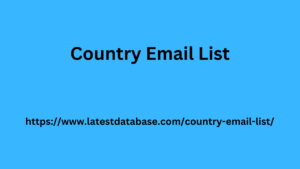Introduction to Email Validation
In today’s digital age, email has become an indispensable communication tool. As such, it’s crucial to ensure that the email addresses collected are valid to avoid errors and maintain data integrity. Email validation libraries provide efficient and reliable mechanisms to verify the accuracy of email addresses, safeguarding your applications and user experiences.
Why is Email Validation Important?
- Data Quality: Validating email addresses helps maintain a clean and accurate database, preventing unnecessary storage of invalid information.
- Deliverability: Ensuring email addresses are correct improves deliverability rates, reducing bounce rates and enhancing communication efficiency.
- Security: Validating email addresses can mitigate spam and fraud by reducing the chances of malicious actors using invalid addresses.
- User Experience: Providing a seamless email validation process enhances user experience by minimizing errors and ensuring timely communication.
2. Key Features of Email Validation Libraries
When selecting an email validation library, consider the following essential features:
- Syntax Checking: The library should accurately verify the email address syntax, ensuring it adheres to the RFC 5322 standard.
- Domain Existence: It should check if the Country Email List domain part of the email address exists, preventing errors associated with non-existent domains.
-
MX Record Verification:
- The library should verify the presence of MX (Mail Exchanger) records, indicating that the domain is configured to receive emails.
- Disposable Email Detection: It should Updated 2024 Mobile Phone Number Material identify disposable email addresses, which are often used for temporary or anonymous purposes.
- Blacklist Checking: The library should check against blacklists to prevent emails from being sent to known spam or malicious addresses.
- Real-Time Validation: The library should offer real-time validation capabilities, ensuring that email addresses are checked immediately upon input.
- Batch Validation: For large datasets, the library should support batch validation to efficiently process multiple email addresses simultaneously.
- API Integration: The library should provide well-documented APIs for easy integration into various applications and platforms.
- Performance Optimization: The library should be optimized for performance to handle large volumes of email validation requests efficiently.
3. Popular Email Validation Libraries and Their Comparison
Several popular email validation libraries are available, each with its own strengths and weaknesses. Let’s compare some of the most widely used options:
1. Email Validation API
- Features: Comprehensive syntax checking, domain existence verification, MX record validation, disposable email detection, blacklist checking, real-time validation, batch validation, and API integration.
- Pros: Highly accurate, reliable, and easy to use. Offers a wide range of features and customization options.
- Cons: May require a subscription or pay-as-you-go pricing model.
2. Mailgun
- Features: Email validation, email deliverability, and email marketing tools.
- Pros: Offers a suite of email-related services in addition to validation.
- Cons: May have limitations for those solely focused on email validation.
3. ZeroBounce
- Features: Email validation, email list cleaning, and email deliverability analytics.
- Pros: Provides a comprehensive solution for email list management.
- Cons: May be overkill for simple email validation needs.
4. Mailtrap
- Features: Email development, testing, and debugging. Includes email validation as a feature.
- Pros: Ideal for email development and testing, with validation as a bonus.
- Cons: May not be as comprehensive for standalone email validation.
5. Email Checker API
- Features: Basic email syntax checking and domain existence verification.
- Pros: Simple and straightforward for basic validation needs.
- Cons: Limited features compared to more advanced libraries.
6. Email Validation Library (Open-Source)
- Features: Varies depending on the specific library.
- Pros: Free and customizable.
- Cons: May require more development effort to integrate and maintain.
Choosing the Right Library
The best email validation library for your needs depends on factors such as the level of accuracy required, the features you need, your budget, and your technical expertise. Consider the following guidelines:






